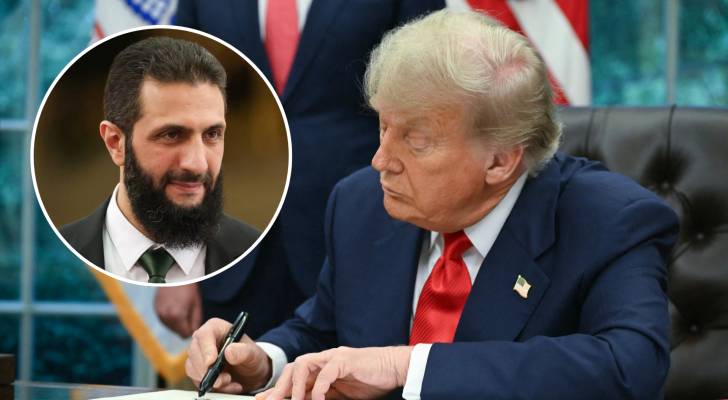Trump signs executive order lifting Syria sanctions
US President Donald Trump signed an executive order on Monday dismantling the core framework of economic sanctions on Syria, citing the need to support the country’s recovery after over a decade of civil war.
The move removes a series of longstanding restrictions aimed at the former Assad regime, though key sanctions on individuals and terror-designated groups remain intact.
The decision follows Trump’s May 13 declaration to lift all sanctions and open diplomatic channels with Syria’s new president, Ahmed al-Sharaa.
"This is a blanket opportunity around all the things that we need to turn back on this economy," US Special Envoy for Syria Thomas Barrack told reporters during a phone briefing. "But one thing is clear: Neither the president nor the secretary of state are nation building. They're saying we are going to give you an opportunity."
The order, effective Tuesday, revokes five executive orders and lifts the 2004 national emergency declaration on Syria, effectively removing the legal basis for most US sanctions against the country. It also instructs federal agencies to begin lifting export controls and other restrictions related to Syrian commerce and financial institutions.
However, the order stops short of fully normalizing US relations with Syria. Sanctions on former President Bashar al-Assad, his allies, and individuals tied to human rights abuses, terrorism, weapons proliferation, or Captagon trafficking remain in place. Additionally, Syria's 1979 designation as a state sponsor of terrorism remains, though officials say it's under review.
The executive order does not affect the terrorism designation of Hayat Tahrir al-Sham (HTS), the group that formerly aligned with Al-Qaeda and now plays a central role in the new Syrian government. While HTS controls key ministries, the group has distanced itself from global networks and fought both Daesh and rival militants in recent years.
“The order instructs the State Department to take appropriate action on HTS-related counterterrorism designations,” an administration official said, noting Syria’s renewed interest in confronting Daesh and other militias.
The Caesar Syria Civilian Protection Act, passed with bipartisan support to isolate the Assad regime economically, remains in effect, though the Trump administration issued a six-month waiver last month along with a general license to facilitate transactions with Syrian state institutions. Lawmakers from both parties are now pushing legislation to repeal the Caesar Act, which may be folded into the upcoming National Defense Authorization Act.
Administration officials argue that the rollback will help attract foreign investment and support Syria’s reconstruction efforts, signaling a dramatic US pivot toward engagement rather than isolation.




